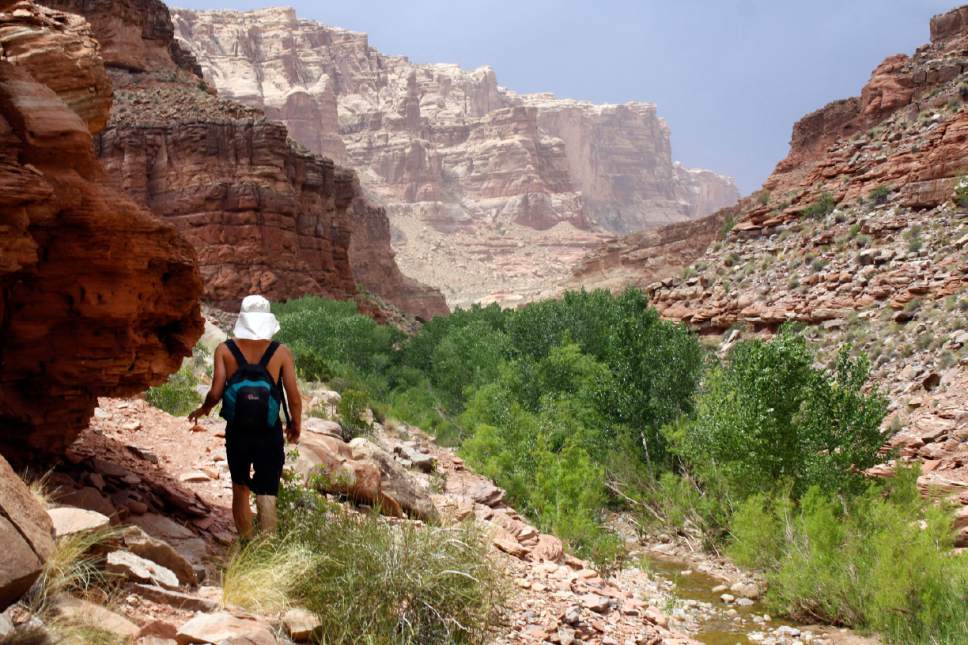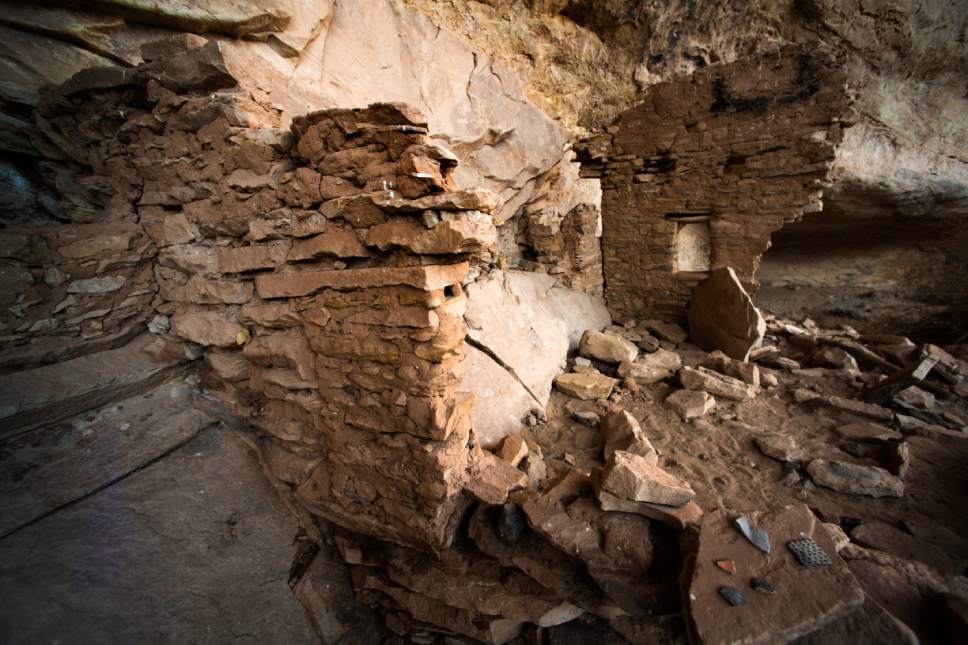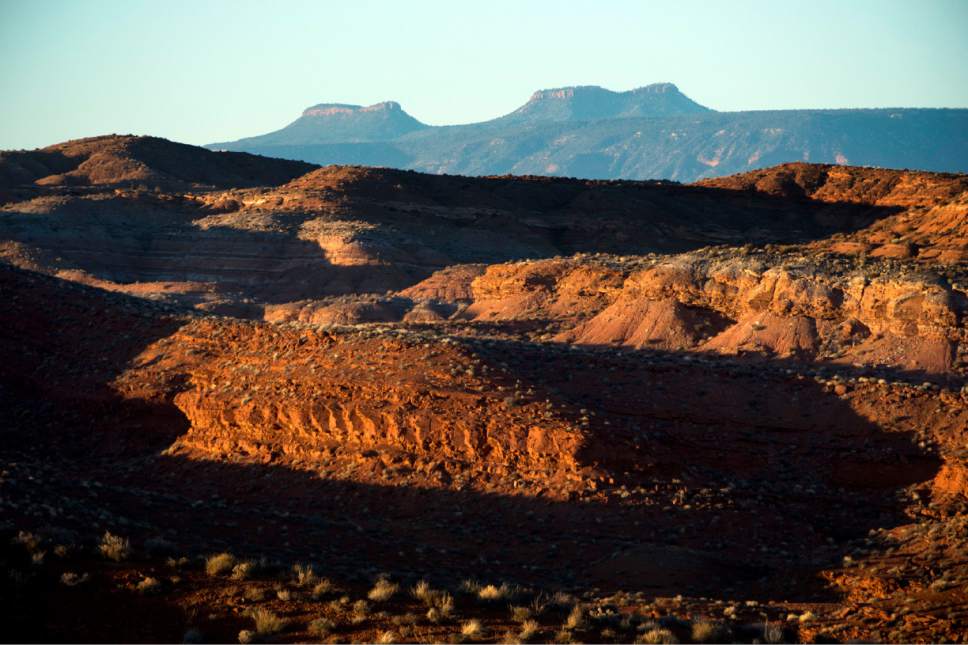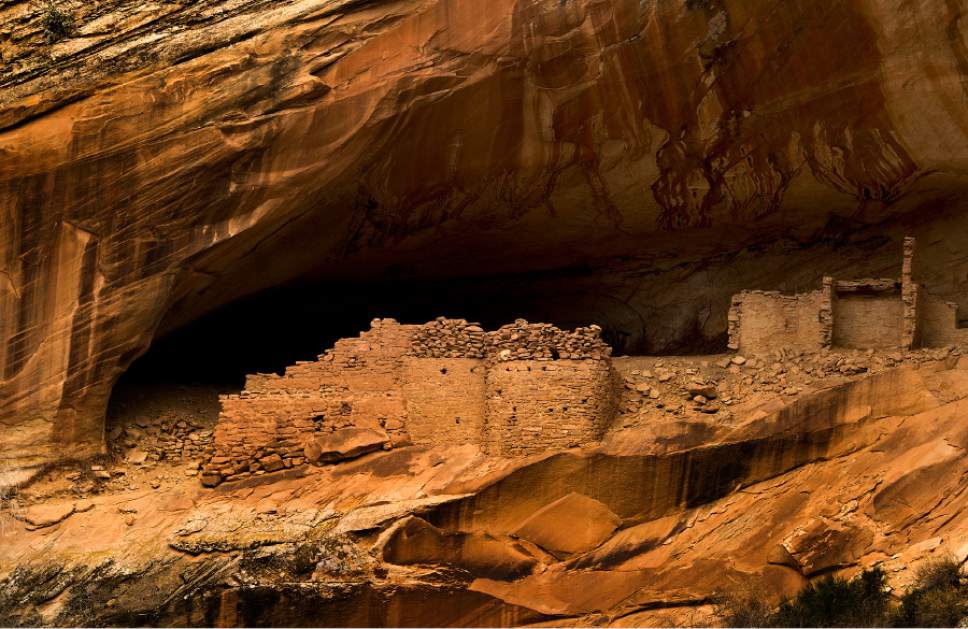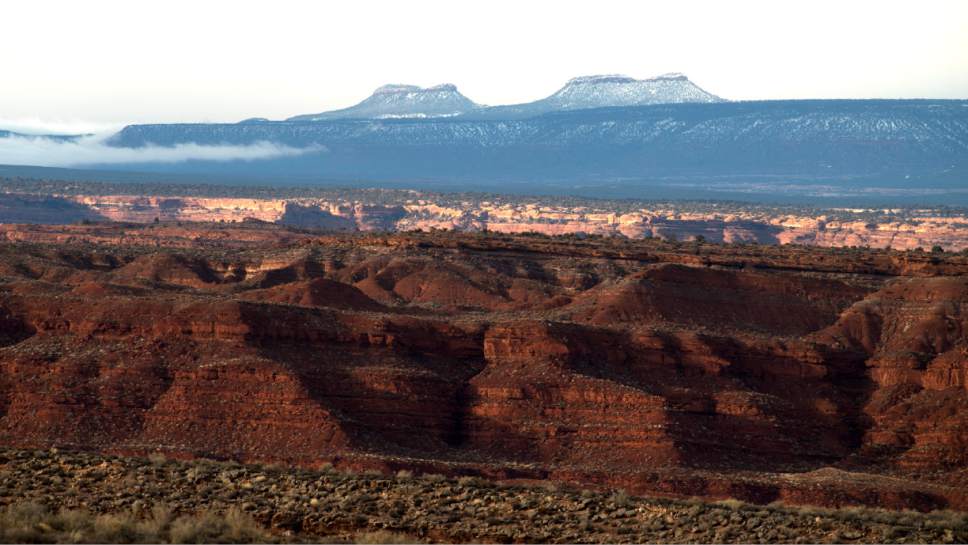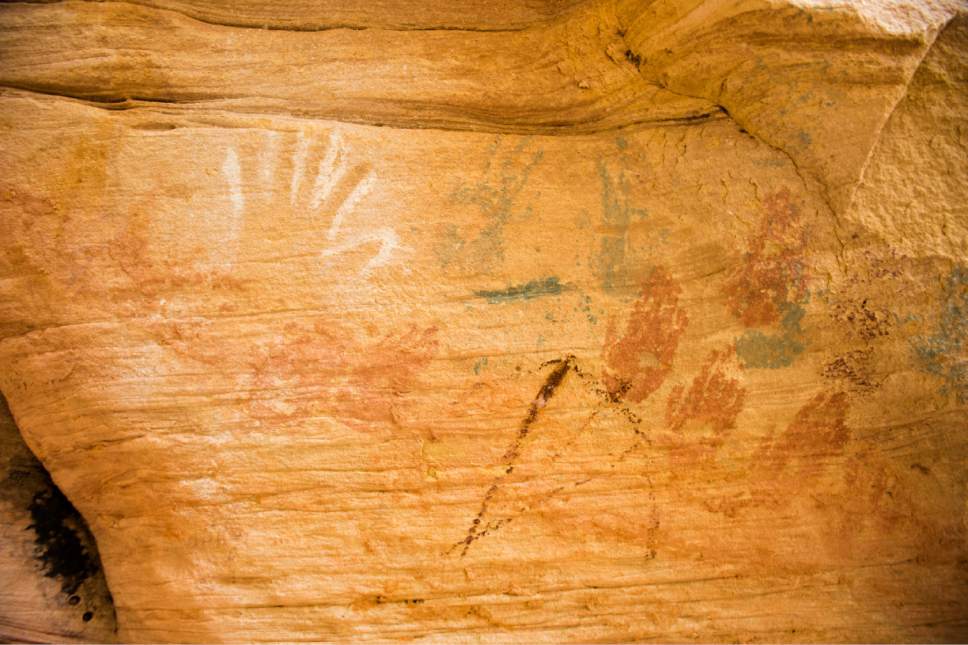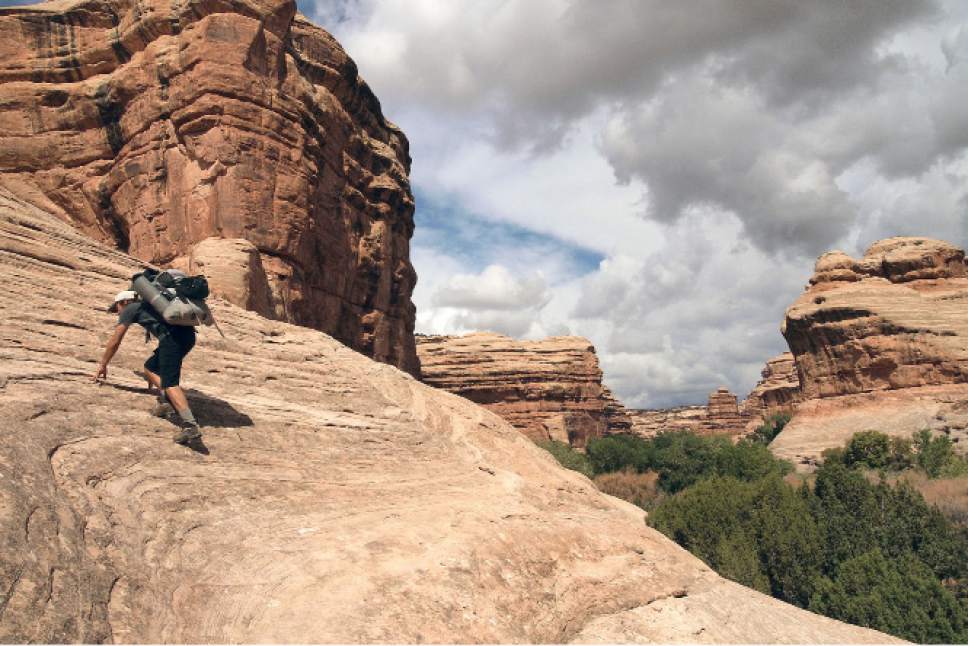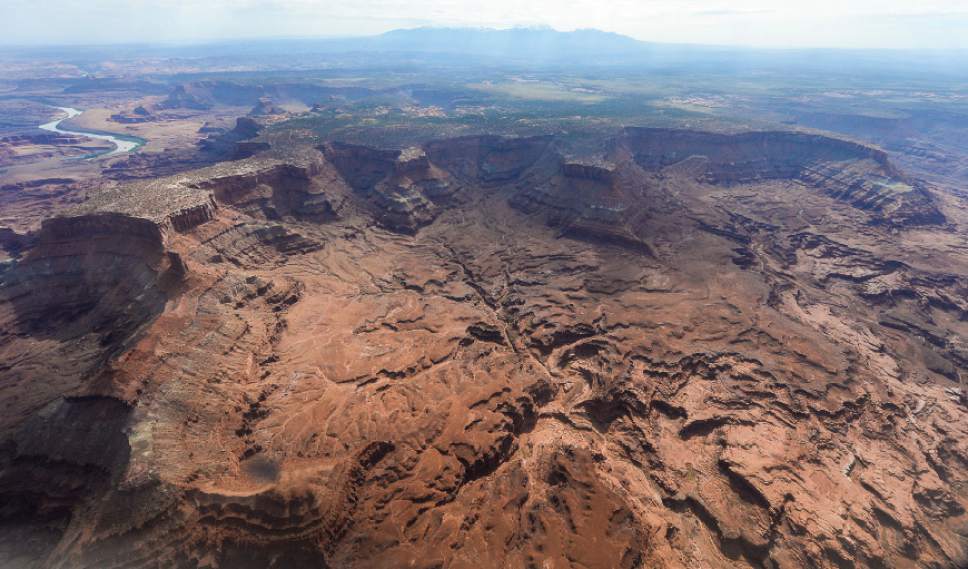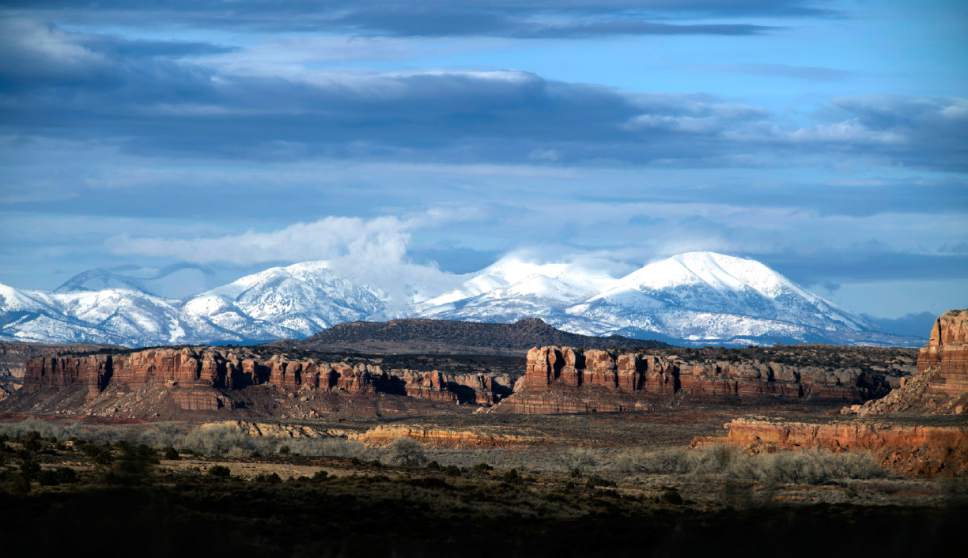This is an archived article that was published on sltrib.com in 2017, and information in the article may be outdated. It is provided only for personal research purposes and may not be reprinted.
Washington • As he prepared to travel west, Interior Department Secretary Ryan Zinke got a letter from a coalition of tribes in Utah on Friday. The group had filled the seats on a commission to manage the new Bears Ears National Monument, the letter said, and Zinke was invited to discuss its future.
But the future of Bears Ears, which the tribes pushed for and President Barack Obama granted just before leaving office, is uncertain. Utah's Republican lawmakers have launched an intense lobbying effort to persuade President Donald Trump and Zinke to rescind the designation.
Management of Western land, with its teeming wildlife and vast mineral riches, will be Zinke's greatest challenge at Interior, and conflict over land is particularly acute in Utah. It's second only to Nevada among the Lower 48 states with the most federally owned land — more than two-thirds — and officials there were still smarting over the 1.9 million acres set aside for the Grand-Staircase Escalante National Monument by President Bill Clinton nearly two decades before Obama created Bears Ears.
The secretary hasn't commented publicly about Bears Ears, but a statement from Interior about his position on public lands echoed the concerns of Utah Republican officials who complain that a massive amount of acreage was set aside for the monument without their consent.
Zinke, an avid hunter and fisherman, supports "the creation of monuments when there is consent and input from local elected officials, the local community, and tribes prior to their designation," Interior spokeswoman Heather Swift said in the statement. Zinke believes monuments are beneficial, but "careful consideration is required before designating significant acreage."
Conservationists are worried not only about Bears Ears but also about the future of other monuments. They are concerned that Obama's recent expansion of the Papahanaumokuakea Marine National Monument on land and sea in the Northwestern Hawaiian Islands and his designations of the Northeast Canyons and Seamounts Marine National Monument in the Atlantic Ocean and Katahdin Woods and Waters National Monument in Maine could be targeted for reduction by the Trump administration.
Utah Gov. Gary Herbert, who is a Republican, and members of Utah's congressional delegation say "careful consideration" didn't happen when Obama set aside 1.3 million acres to create Bears Ears in December.
Herbert vowed to fight the new monument. "We know how to challenge this action appropriately through the many administrative, legal and legislative avenues available to us. We will aggressively pursue these options."
He put his state's money where his mouth is during a tense phone call last month with leaders of the Outdoor Industry Association. The group demanded that he end his support for a state resolution urging Trump to rescind the monument or lose two annual events that the group holds in Utah. Together, the outdoor-gear trade shows bring about $50 million to Utah.
"If you're giving me an ultimatum here on the phone, then the answer is, I guess, we're going to have to part ways," Herbert said, and the group decided to move its trade show.
"There's going to be litigation if you rescind Bears Ears," said Amy Roberts, the executive director of the association, whose 1,200 members include the Patagonia and North Face brands. The Sierra Club and the Wilderness Society are two of the conservation groups against rescinding the monument's designation.
The law appears to be on the their side, according to legal experts who study public lands. "The president does not have the authority to rescind based on the vast weight of legal opinion," said Bob Keiter, a law professor at the S.J. Quinney College of Law at the University of Utah.
"He has the authority to create monuments but not un-designate them. It's never been tried by a president before. Congress has rescinded a handful of public monuments. There is precedent for president and Congress shrinking national monuments. He could shrink it, but there would be a court case."
A coalition of the Navajo, Hopi, Ute and Zuni tribes supported the Bears Ears designation, said Mihio Manus, a spokesman for the Navajo Nation Office of the President and Vice President.
"I think that the coalition of tribes that supported the Bears Ears designation did so because there is cultural and historical interest in that area," Manus said. "It is those areas we're trying to protect."
Mark Wintch, vice president of Utah Cattlemen's Association, said he respects that decision but that a 1.3-million-acre monument is too much. "The hikers have access, the ranchers do not. It has become a very personal thing with the large overreach of the government telling ranchers what we can do out here."
A poll released in January appears to show that Utah's residents want their monuments to remain as they are. Sixty percent of respondents said designations should be kept in place. Ninety-five percent said opportunities for outdoor recreation in the state were good or great and 83 percent supported promoting the outdoor economy, according to the Conservation in the West poll by Colorado College.
National parks such as Zion and Arches are a boon to Utah. According to the Park Service, they generated nearly $850 million per year in visitor spending and created 14,000 jobs that paid $435 million in 2015.
The $1.3 billion economic impact of parks and monuments is so important that the state stepped in during the 2013 government shutdown and paid the Park Service to keep them open.
Despite the popularity of federal lands, said state Sen. Wayne Niederhauser, a Republican, Utah should control more of the land for both mineral excavation and cattle grazing for its many ranchers.
Herbert delivered that message to Trump at this year's winter gathering of the National Governors Association in Washington. "The governor had an opportunity to talk to Trump, and he also has a relationship with Mike Pence," said Niederhauser, the senate president. So he has a connection, and we're making those connections."
The resolution to fight Bears Ears originated in the Utah State Legislature. "I don't believe any one person should have that kind of power," Niederhauser said, referring to presidential authority to create monuments. "We should make sure this never happens again."
The Outdoor Industry Association says Utah's hostility toward the national monuments and public lands is a threat to its industry. If the group follows through with its decision to remove its trade shows from Salt Lake City, events that brought nearly a billion dollars over the past 20 years would be lost.
Roberts said the association faced a rebellion from its ranks if it remained and that about 10 to 20 retailers said they would pull out from the summer show the association is obligated to hold July 26 through 29. "The ones that would stay said they would stay for one more show for us to look for another place."
Patagonia joined forces with two of the show's other marquee brands, REI and the North Face, to move the association to action.
"We're competitors, but we're very united on this issue," said Corley Kenna, a spokeswoman for Patagonia. "We think it's very important to make this stand on public lands. We see them as under threat."
Conservationists are at a disadvantage with Zinke and know little about his decision process. He's a former Republican House member from Montana whose votes on environmental issues scored poorly with the League of Conservation Voters.
At his confirmation hearing, he said park recreation is important for all Americans, and he said he has no intention of turning over federal land to the states. But he also said states have a right to revenue from coal and mineral resources buried in their lands.
During a recent weekend trip to Yellowstone National Park, he appeared to enjoy his romp on government land, according to several tweets.
"The crews at Yellowstone . . . put me to work today helping clear roads for the spring season," he tweeted under a picture of a snow-clearing bulldozer.
He also signaled his reverence of parks and the need to attack the system's $12 billion maintenance backlog. "Looking forward to that infrastructure bill," he said in a message to Congress. "Funding repairs in our parks is an investment, not solely an expense."


